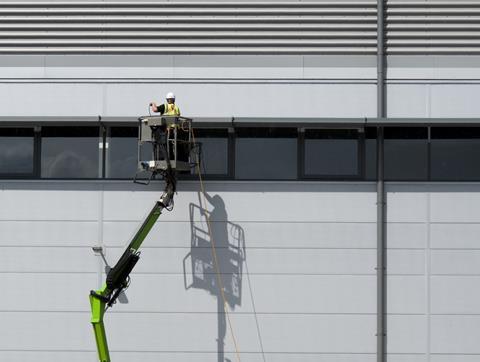More than half of the decided applications to pay for remediation of non-ACM clad buildings so far refused
More than half of decided applications for a £1bn fund to pay for the remediation of flammable non-ACM have been refused, according to government figures.
The housing ministry said that it had so far made decisions on 138 of the 2,784 applications made to the fund since it launched in May, and that just 65 applications had been approved – with 73 turned down.

That equates to 47% of decided applications being approved, and 53% refused.
Compared to the total number of buildings which have applied for the funding, the 65 approvals represent just over 2% of the total. However, the process is ongoing, and the government said the vast majority of applicants – 83% - hadn’t yet provided enough information in their bids for the department to make a decision.
The figures are the first released confirming the scale of demand for the fund, which the Sunday Times last month reported was far higher than officials had been expecting.
The figures follow a report published earlier this summer, by the housing select committee which concluded that the £1bn pledged to repair buildings with dangerous non-ACM cladding would likely be sufficient to cover only a third of the problem. It said stringent rules on applying to the fund, including a short application window and restrictions against social housing providers, risked leaving many unable to access vital funding.
More recently Meg Hillier, chair of the public accounts committee, published a highly critical report on the government’s progress telling it to stop arguing over responsibility for the work and get the problem sorted.
The department, however, has said there is no limit to the number of applications that can be made to the fund, albeit that funds will be allocated on a first-come first-served basis.
In response to the select committee report, the housing ministry said: “Government funding should not be the only means of remediating high-rise residential buildings with unsafe non-ACM cladding systems and both the social and private sector are expected to play a part in ensuring that their buildings are made safe.”
It added that building owners should meet the costs of repairs without passing them on to leaseholders in the first instance, either through their own resources, or by recovering costs from warranty schemes, or the developers or contractors responsible for the cladding.
It also accepted that the fund will not pay for the majority of the costs of remediating housing blocks owned by social landlords.
The government figures showed that seven councils areas have seen applications submitted for more than 100 blocks, with 282 submitted within Tower Hamlets, more than double at the next most prolific authority, Manchester. Newham, Westminster, Southwark, Birmingham and Greenwich are the other authorities in which more than 100 applications to the fund have been made.
A housing ministry spokesperson said the department’s priority was making homes safer, faster. The spokesperson said: “We are already working to progress eligible applicants to the Fund to the next stage – so we can begin the remediation process as quickly as possible.
“It’s disappointing so many building owners – who are responsible for making sure their buildings are safe – have been unable to provide the basic information we need to progress and we urge them to do so as quickly as possible.”










No comments yet